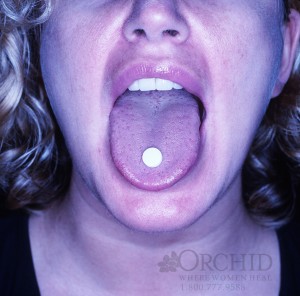The Downfalls of Long Term Suboxone Treatment

Many people who are in recovery will admit that long term Suboxone treatment, also called Suboxone maintenance, is a hot-button issue – dividing people into two main camps: those who are for it and those who are against it. There is, however, one thing both sides agree on: Suboxone is an excellent detox aid.
Until Suboxone, whose generic drug name is buprenorphine, was developed eight years ago, most people who wanted to kick an opiate addiction to heroin or prescription painkillers had just one option: methadone, which is administered in liquid form and dispensed methadone clinics: crowded and dismal clinics, usually located in the worst parts of town (and far away) because it is a Schedule II drug.
But Suboxone, which is a Schedule II drug, was touted as the first in a new generation of addiction treatments that would change the face of recovery by removing patients from detox and rehab centers, and into doctor’s offices where they could be prescribed the drug, in pill form and thus control where and when they took it.
As someone who tried both methadone maintenance and Suboxone maintenance before finally going to treatment and seeking what I consider to be real recovery, I will share with you what I see as the downfalls of long term Suboxone treatment:
#1. Feeling blech
I needed to take daily naps, felt sick to my stomach, and had frequent headaches while on Suboxone. If I didn’t take my next dose on time, I would begin to feel withdrawal symptoms (see #3).
#2. Financially bleeds you
Suboxone is not typically covered by insurance; it’s an out-of-pocket cash business. Therefore, doctors will encourage you to stay on it, for their own benefit, rather than educate you on alternative ways to recover.
#3. Still dependent on a substance
Suboxone is part-opiate and many people will argue that being on it is not truly being in recovery from mood and mind-altering substances. And, because it contains an opiate, you will experience withdrawal if you try to quit cold turkey. Also, it has a longer half-life, making detox from it a lot longer and more difficult than kicking heroin. In fact, I went to treatment seeking help to detox from Suboxone.
#4. Not yourself
Again, being that Suboxone is part-opiate, you are still behind that hazy veil, or in a drug stupor. Also, my experiences with it were that I was moody, irritable, and impatient.
#5. Not allowing yourself to actually heal from addiction
Switching from one opiate, such as heroin, methadone, or prescription painkillers, to another, in this case Suboxone doesn’t “heal” the neurological aspect of addiction, which is characterized in part by the phenomenon of tolerance: as long as opioids are being taken, the body decreases its production of endorphins and increases the number of receptors, which in turn, creates cravings.
#6. Surviving, not thriving
Perhaps the worst repercussion of them all, when you’re on a long term Suboxone treatment – from my personal experience and from I’ve seen and heard from others who have done it or are currently doing it – you are merely getting by. In other words, surviving.
I don’t know about you but, when I was seeking recovery, if I knew I was just going to “get by” because Suboxone would give me *some* quality of life, to be honest, I’d probably still be out there using, if not dead. That simply wouldn’t be worth it to me to get clean. Today, I work a program of recovery, which means that I’m thriving in life. I have my dream job, loving and supportive friends, good relationships with my family members, and most of all, I’m not living with that horrible empty feeling that I had become so used to. Today, I’m thriving because I have a sense of inner peace and happiness.
If you are on a Suboxone maintenance or methadone maintenance and are seeking help with detox and/or rehabilitation, help is available. There are other ways to recover that won’t leave you dependent on medication. Call us toll-free 1-800-777-9588 to speak directly with an Addiction Specialist. We are available 24/7.
